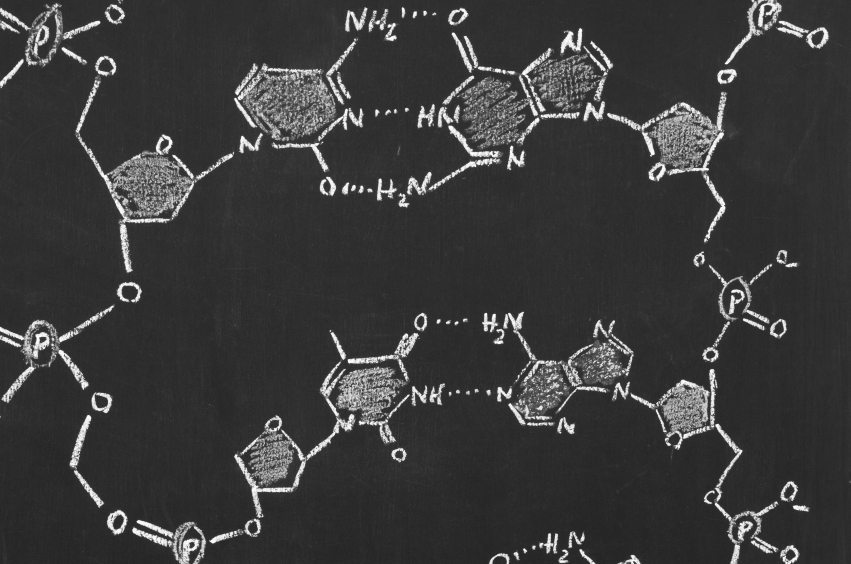
This test is no longer being offered.
Update March 22, 2020: While SAT Subject Tests™ are getting phased out by many colleges and universities (see recent announcements from Cornell and MIT), there is some speculation that the SAT Subject Tests™ will have greater weight this year because so many schools are going pass fail for the balance of the year. We suggest discussing with your individual college counselors.
We are available for private and group tutoring for the SAT Biology Subject Test.
The first question most people have is, should my child choose the “M” (Molecular Biology) option or the “E” (Evolutionary Biology) option? Most classes these days go into greater depth in molecular biology, but there are huge areas in molecular and cell biology that classes always omit, because there is just too much material – and any of that material might get tested heavily on a given SAT Biology administration. Conversely, the entirety of ecology and evolution they would see on the “E” version is covered in about 8 chapters in the textbook. This might represent some additional study time, but reading those chapters will prepare students for any potential SAT ecology/evolution question they might encounter. Conversely, if you are taking a class that brands itself as an “Introduction to Molecular Biology/Biochemistry”, the “M” option should be the obvious choice.
Another point to consider is if your particular class has covered the material in sufficient breadth. Obviously many schools give their teachers wide leeway in so far as going more in depth on a few specific topics. But the SAT Biology, and in fact all of the SAT Subject tests in Math/Science, will look more at the spectrum of material covered as opposed to the depth of any given topic. As such, one need not have taken an advanced biology class, or AP Biology, in order to do well. A rigorous 9th grade or introductory biology course will suffice, and we have a number of basic biology students score in the 780 – 800 range every year.
Of course, before you even consider preparing for one of these tests, you need to understand that while test taking techniques exist, and they are helpful, there is very little chance your child will score over 700 if they are not already doing well (B+ and above) in their class. The notion that one can select the right answer without knowing anything about the actual subject, a concept put forth by a number of major test prep firms, is sadly untrue. If you don’t know the material you are not going to do well on the test. Don’t get us wrong, we don’t want to sound pessimistic! Test taking techniques help, but if your child is borderline B-/C+ they are much better off focusing on their course and bringing up their grade. Time spent preparing for the SAT Biology may not necessarily help, especially if the final exam is more heavily geared towards the second semester, as is often the case.
But assuming a student has the requisite B+ and above grade, the question then is when do they begin preparing? The ideal time to begin the actual practice tests is just after spring break, but review should start as early as January to look at the subjects the test covers, which their class does not. The SAT Biology tests for an understanding of the breadth, and not the depth, of the subject material, and many teachers emphasize detail at the expense of breadth – again, there is simply not enough time for them to cover the vast amount of material. This is where tutoring is especially helpful: figuring out the gaps in the class material relative to what might appear on the test.
As you are aware, the test is offered twice at the end of the year (May and June), and once in August. When administration should a student sign up for? If they are taking AP® biology, which ends in early May, they should sign up for the May 3 test because they will have completed almost their entire course and the material will be freshest. Basic biology students, for whom the course often goes through late May or early June, should wait for the June administration, but should also consider the August or October test, especially if the June test results aren’t what they hoped for. The reason for this is two fold: first, the “curve” seems to be a bit more forgiving when fewer students, especially students who have taken AP Biology, take the test. I am not sure why this is so, but it seems to have proven true over the years. Also, if a student did not do so well on the June test, oftentimes it is because the material they learned didn’t happen to correlate with the material on that particular test administration. Remember, the difficulty of these tests is in the scope of material, and if the June administration is particularly heavy on plant anatomy, the August or October test might emphasize the immune system. I once had a student get a 570 on her June test, go away to the beach for the summer (where she most assuredly did not study biology) and then retake the test in October. She got a 740….
So be sure to give us a shout if you have any questions and we will do our best to answer them!
SAT Subject TestsTM is a trademark registered and/or owned by the College Board, which was not involved in the production of, and does not endorse, Warp Drive Tutors.
